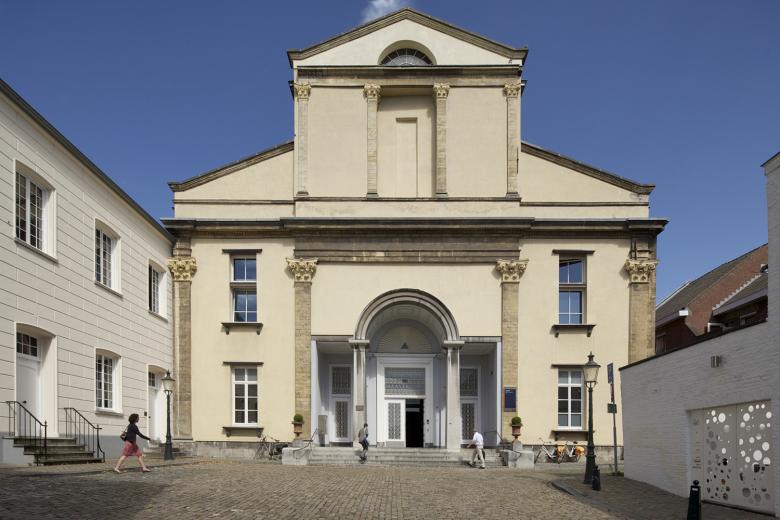Maastricht University is suspending its relationship with student associations Tragos and Circumflex until further notice.

Maastricht University is working to make its real estate healthier, more circular and low-carbon. This includes improving energy performance, reducing emissions (Scope 1 & 2), and integrating nature-based solutions like green roofs and biodiversity-friendly landscaping. By embedding sustainability into every stage of real estate planning—from renovation to new builds—UM is creating a campus environment that supports wellbeing, climate resilience and future-proof design in the long-term.
To better understand the attitudes, behaviours and needs of students and staff, UM will be conducting a university-wide sustainability perception survey. The results will provide insight into current levels of engagement, willingness to act, and perceived barriers to sustainability. This data will inform future strategies, help prioritise action areas, and support targeted communication. It will also serve as a baseline for monitoring progress over time. The survey is a vital step in building a shared understanding and ensuring that UM’s sustainability efforts are inclusive, evidence-based and community-driven.
At Maastricht University, we’re rethinking the way we move. With thousands of students and staff commuting daily, mobility is a major factor in our environmental impact. That’s why we are working towards a university where sustainable travel is the default, not the exception.
Our ambition is to drastically reduce carbon emissions from commuting and business travel. To do so, we promote and support cycling, public transport, and shared mobility solutions. We also work to remove practical barriers that may prevent sustainable choices—such as complicated reimbursement systems or lack of facilities. Whether you're biking to campus, hopping on a train to a conference, or joining a meeting online instead of flying, every step counts. It’s not just about cutting emissions, but about creating a healthier, more connected university. Because sustainable mobility isn’t just good for the planet—it’s good for all of us.
As part of Maastricht University’s commitment to sustainability, we aim to embed sustainability topics across all educational programmes. Education for sustainability empowers students to take informed, responsible action—for environmental integrity, economic resilience, and a just society, both now and in the future.
To support this goal, the SUM2030 Education Grant is available to course coordinators and teaching staff who wish to integrate sustainability into their courses. The grant offers up to €5,000 in compensation for time spent (re)developing course modules that embed sustainability into existing or new core curricula.
Application timeline: to be determined (estimation: June 2025)
Who can apply?
This grant is open to UM teaching staff involved in course coordination or development. Applications can be submitted by individual teachers or course teams.
Applicants must:
- Be involved in the (re)design of a course or course component;
- Hold an employment contract covering the course’s timeline;
- Have approval from their supervisor or course coordinator (if not applying as course coordinator).
Selection criteria
Proposals will be assessed based on:
- The integration of sustainability into an existing or newly developed course;
- Preferably targeting core Bachelor or Master courses (electives will also be considered);
- Quality and feasibility of the proposal, including alignment with learning outcomes;
- Balance across faculties and study programmes.
At Maastricht University, sustainability is not only about research and policy—it’s also about getting our hands dirty. Across campus, several community gardens offer students and staff the opportunity to connect with nature, grow their own food, and build community.
The Green Office Garden, located behind the Sustainability Hub, is an open space for students to learn about sustainable gardening and seasonal crops. Whether you're an experienced grower or a complete beginner, the garden welcomes anyone interested in experimenting with urban agriculture.
At the Faculty of Psychology and Neuroscience (FPN), a rooftop garden offers staff and students a peaceful, green retreat with herbs and vegetables grown collectively. It’s a great way to unwind, meet colleagues, and take a mental break surrounded by plants.
Last but not least, the TapijnTuin—a collaborative initiative located at the Tapijn grounds—is open to all members of the Maastricht community. It brings together students, staff, and local residents to co-create a sustainable and inclusive public space, combining gardening with community events and workshops.
These gardens are more than just green spaces. They are living labs for sustainability, spaces for mental wellbeing, and hubs for social connection—where growth happens in every sense of the word.